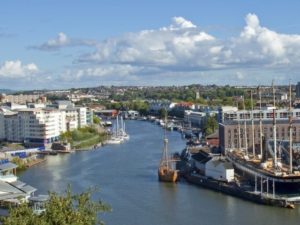Bristol City Council is looking at two options to cut air pollution in line with legal requirements, including an eight-hour-a-day diesel car ban and a charging Clean Air Zone.

The council was one of 27 that were named in Defra’s 2017 clean air plans and told that they needed to undertake action to consider the best option to achieve statutory nitrogen dioxide limit values within the shortest possible time.
This included the requirement to undertake a feasibility study and identify options by 31 March 2018 and identify a preferred option by the end of 2018. But although the council came up with a number of possible options a year ago, it has missed deadlines to submit a preferred option, citing concerns over the impact of any scheme on low-income residents.
Now the council has published details of two new options which it says will allow the city to meet the Government-set targets for air quality improvement and which will be presented to Cabinet next Tuesday 18 June ahead of a six-week public consultation launching on 1 July 2019.
The first option covers a charging Clean Air Zone that would levy charges on buses, taxis, light goods and heavy goods vehicles but not private cars.
The second option would see all diesel cars banned from entering a specific central area for an eight-hour period (from 7am-3pm).
Both options would be accompanied by a package of non-charging measures, such as bans on highly polluted routes for heavy goods vehicles and bus priority measures, alongside a city-wide scrappage scheme and improvements to buses and taxis to ensure they are all within compliant emission standards.
Marvin Rees, Mayor of Bristol, said: “To successfully tackle serious and complex city challenges like poor air quality we must ensure environmental and social justice go hand in hand. We cannot and will not sacrifice our low income households by introducing widespread charges which will have a detrimental impact on them.
“These latest proposals could strike the right balance by targeting the most polluting vehicles within specific classes of vehicle and by considering a dedicated area outside our central Bristol hospitals including the children’s hospital, where we want to protect those most vulnerable to pollution.
“These options will allow us to meet Government air quality improvement targets, but we must and will do more to improve the air quality in our city for all citizens. I look forward to sharing a wider environmental plan soon, where we will commit to working in partnership with city partners for the benefit of all.”

